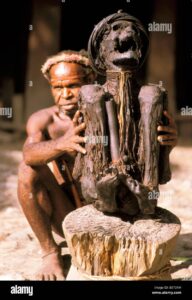
Among the vibrant threads that weave the intricate design of humanity, cultural festivals stand out. These grand celebrations, taking place in various corners of the globe, paint a vivid portrait of diversity, unity, and the human spirit.
1. Holi – India
Spring announces its arrival in India with an explosion of color. Known as Holi, this vivid festival serves as a potent reminder of life’s vibrancy. The festival flourishes with individuals gleefully showering one another with colorful powder, celebrating the victory of good over evil.
The narrative of Holi each year fosters community bonding and encourages the spreading of love. Drawing upon India’s rich mythology, Holi is often linked to the divine love of Radha and Krishna, providing a profound layer of depth to the seemingly playful celebrations that are a hallmark of this festival.
2. Day of the Dead – Mexico
Across the Pacific, Mexico honors those who have passed on in a vibrant annual celebration called Dia de los Muertos or Day of the Dead. Known as a celebration of life rather than mourning, the Day of the Dead transforms Mexican towns and cities into a marvel of color, celebration, and respect for the deceased.
Sugar skulls, marigold flowers, and altars combine to form spectacularly artistic displays, evoking the spirit of unity, respect, and love that defines Mexican culture.
3. Carnival – Brazil
Every February, Brazil pulsates to the rhythm of samba in a grand spectacle known as Carnival. Floats adorned with intricate designs and flamboyantly costumed dancers fill the streets of Rio de Janeiro, making it a riot of rhythm, color, and uninhibited joy.
The roots of Brazil’s Carnival stretch back to ancient Roman festivals of Saturnalia and Lupercalia, reminding us of the timeless human tradition of honoring life through joyous celebration.
4. Hanami – Japan
In Japan, the simplicity and transience of natural beauty are honored through Hanami, a traditional festival devoted to cherry blossom viewing. As the Sakura trees bloom, people gather beneath them, marveling at the fleeting beauty, symbolizing the ephemeral nature of life.
This ancient practice has transcended time, bearing witness to our enduring love for nature and the sublime lessons it offers.
5. Kwanzaa – United States
Kwanzaa, a celebration of African-American culture in the United States, serves as an important reminder of the strength of cultural heritage and community unity. This seven-day holiday has at its heart seven principles, each marking an important aspect of African-American community life.
6. Songkran – Thailand
Songkran, or the Water Festival, is Thailand’s traditional New Year’s celebration. During Songkran, the streets teem with laughter and merriment as locals and visitors engage in a spirited countrywide water fight, symbolising purification and the washing away of sins and bad luck.
7. Inti Raymi – Peru
In the heart of the Andean mountains, the Incan Sun God is honored during Inti Raymi, the Festival of the Sun. With traditional music, dances and grand feasts, Peruvians remember the glory of their ancient civilization and its deep reverence for nature.
8. Oktoberfest – Germany
Oktoberfest, the world’s largest beer festival, draws millions of visitors to Munich, Germany each year. More than just beer, Oktoberfest brings Germans and visitors together in a grand celebration of Bavarian culture, tradition, and camaraderie.
cultural festivals not only provide a kaleidoscope of vibrancy, joy, and unity but also represent a shared human experience across geographical boundaries. They are the threads that knit the world into a fabric of diverse yet unified humanity, reminding us of our shared triumphs, struggles, and the indomitable human spirit. These eight festivals are indeed a testament to humanity’s vibrancy, underscoring the fact that our cultural differences are not divisions but bridges, linking us into one shared race—the human race.





